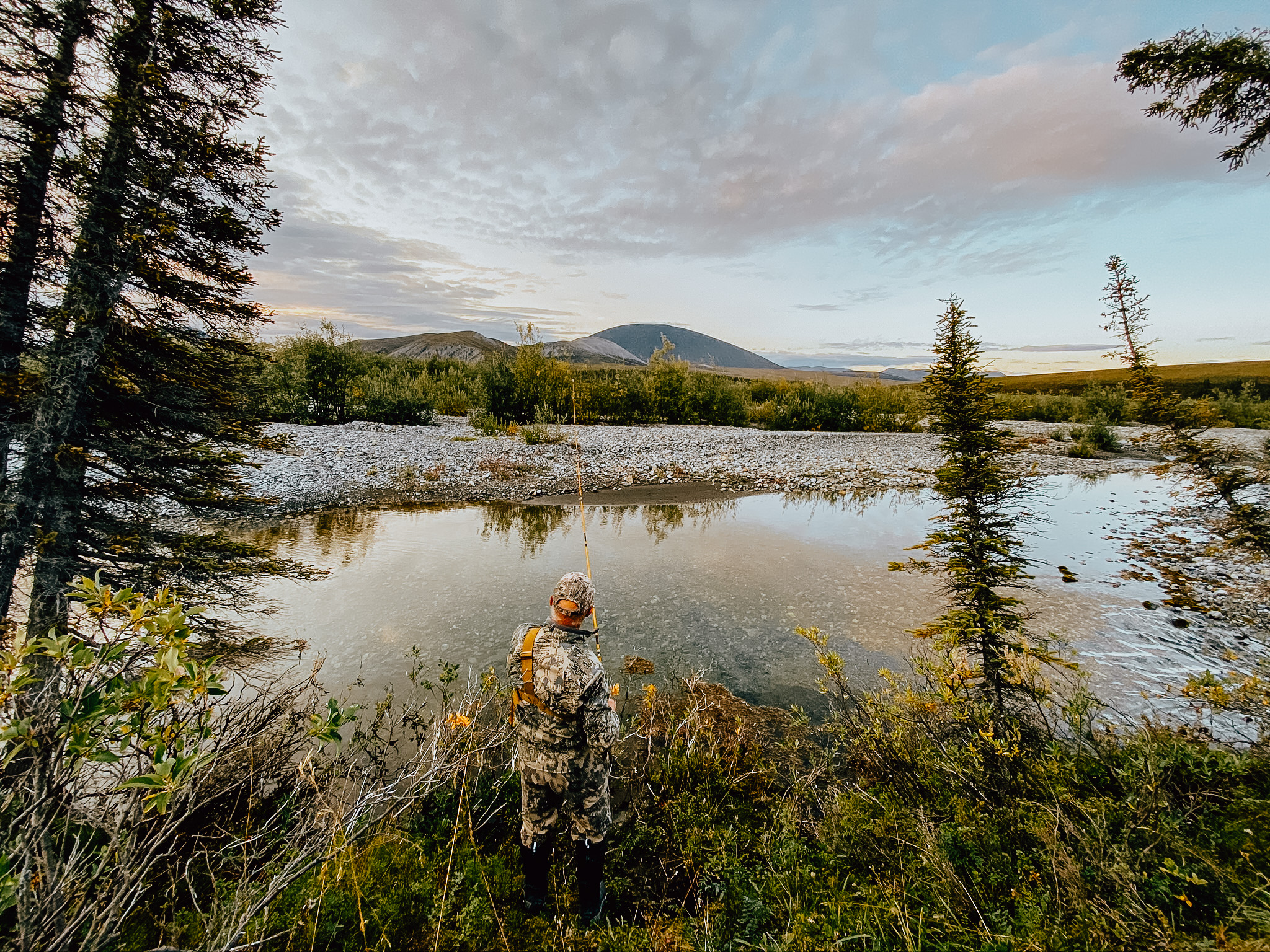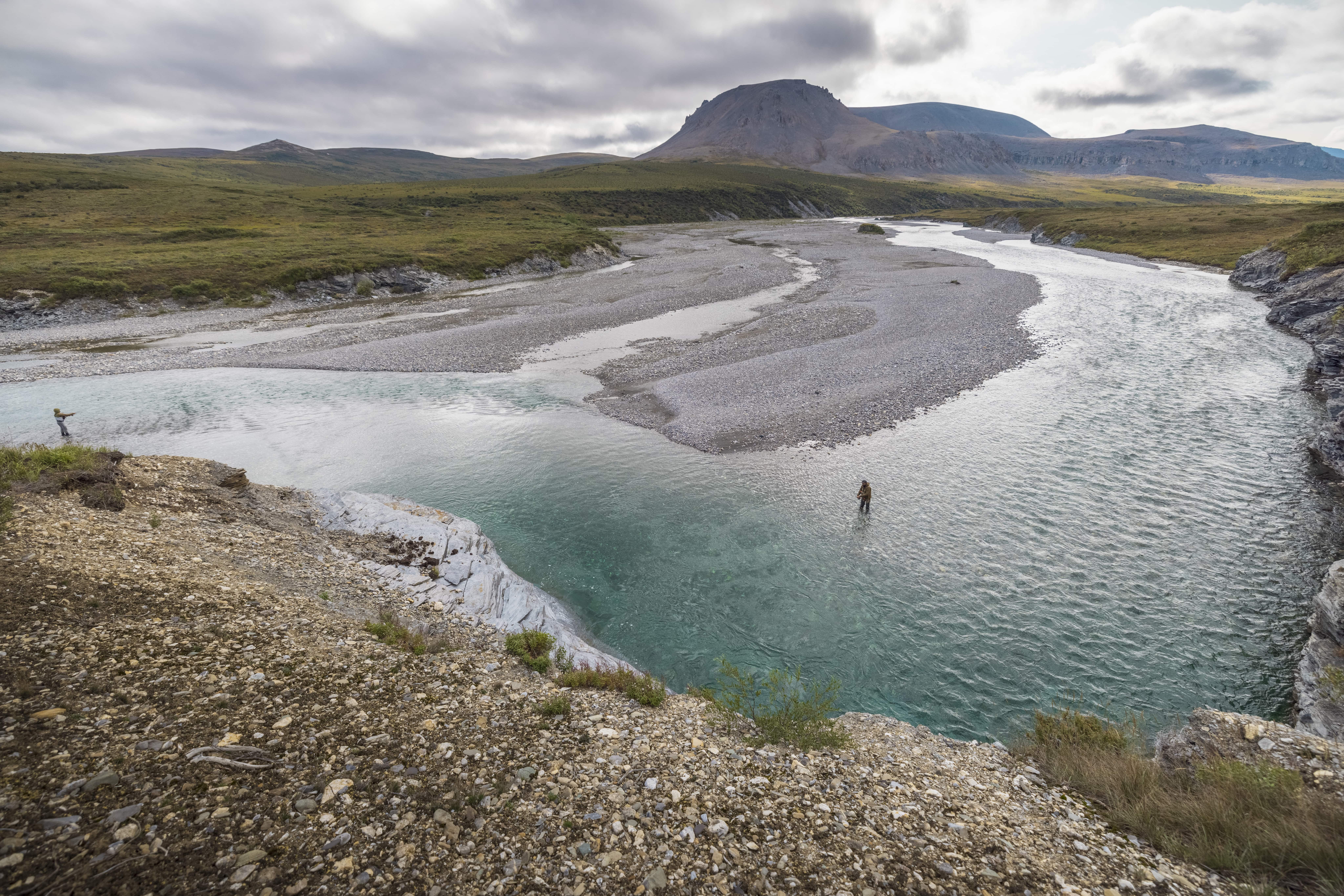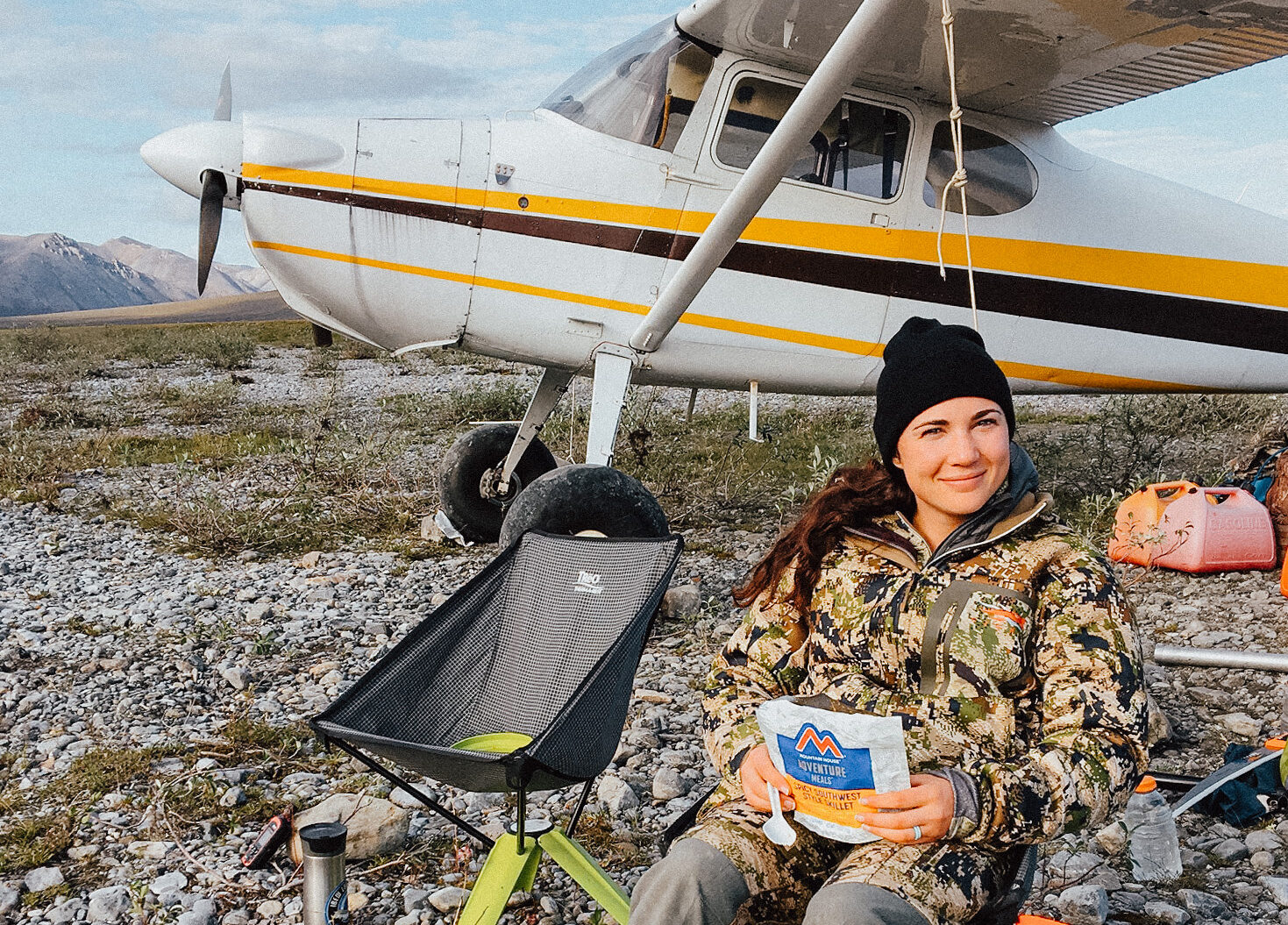Brooks Range Voices: Lewis Pagel
The Northwest Arctic hunter and sheefish ice fishing guide shares how special the Brooks Range is and why he believes the proposed Ambler Road would negatively affect fish, wildlife, and the Alaskan way of life
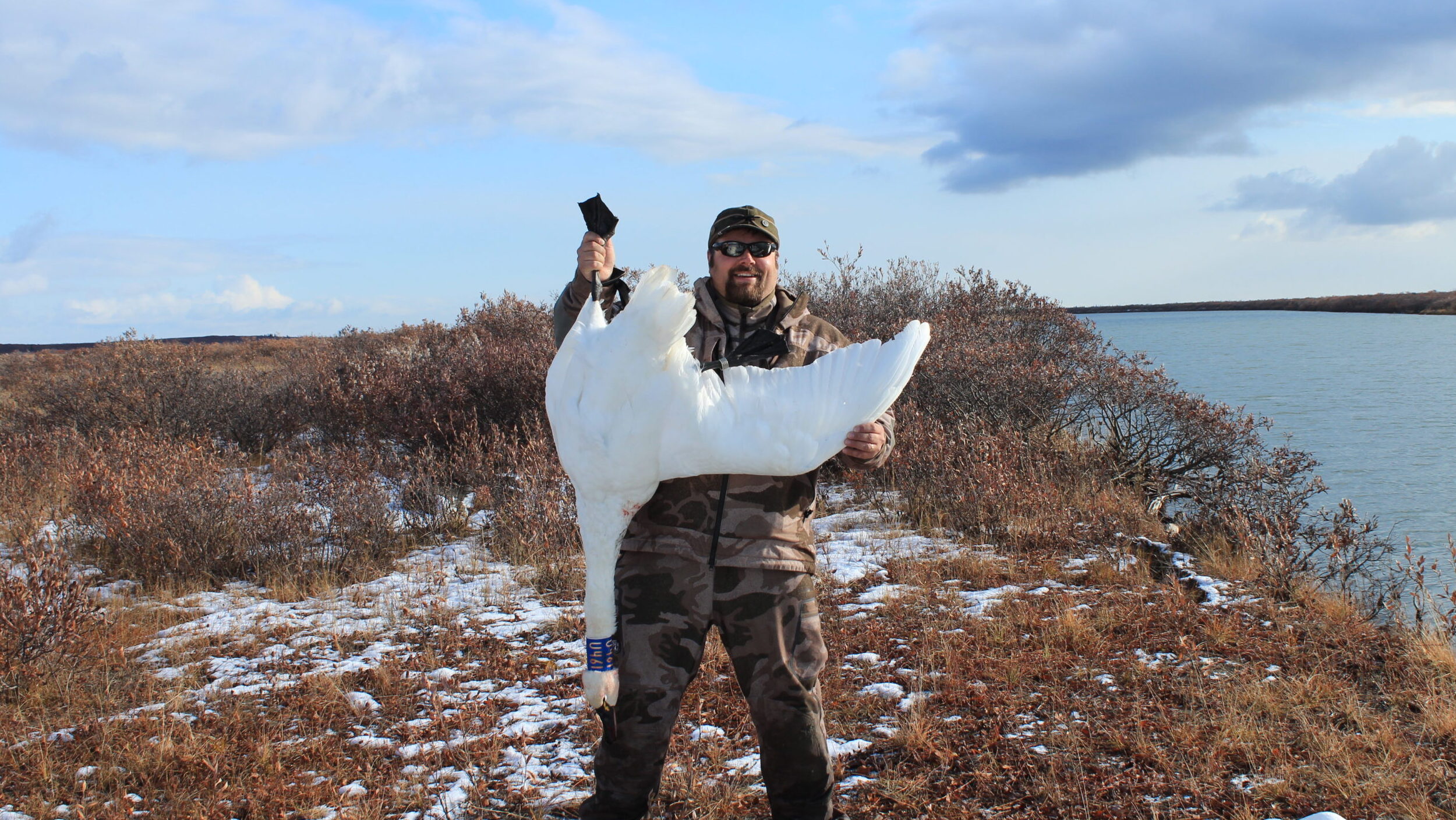
Lewis Pagel is an Alaskan outdoorsman for all seasons. Pagel moved from the Midwest to northwest Alaska in 2007 to live out his hunting and fishing dreams in the Brooks Range. He loves pursuing sheefish, grizzlies, musk ox, and all the other game this wild country has to offer.
He lives in Kotzebue, Alaska, where he’s a chiropractor and owner of Arctic Fishing Adventures, which offers all-inclusive guiding and do-it-yourself sheefish ice fishing packages. He is also state chairman for Alaska Ducks Unlimited.
Pagel knows firsthand what’s at stake for local and visiting hunters and anglers with the proposed Ambler Road. He has spoken up on why maintaining North America’s most wild swath of country is vital to our outdoor heritage.
Here’s his story.
What do you love most about living, working, and/or growing up in the Brooks Range?
What I love most about this region is the lack of obstructions. There are no fences, no barriers, no roadways, and no electrical poles to obstruct the beautiful scenery. You can experience nature the way it was created.
What types of activities do you enjoy in the Brooks Range?
My family and friends enjoy camping on the sandbars along the rivers that traverse this beautiful landscape. I spend lots of time hunting this region for food and fur. In the spring, I get to share the bountiful frozen waters with guests from all over the world as an ice fishing guide for sheefish.
Are there particular species of fish, wildlife, or plants that are especially important to you?
Sheefish are especially important to my ice-fishing guide business. There are very few places in the world where sheefish can be found, and the waterways of the Brooks Range produce the largest sheefish. Grizzly bears are my favorite animal to hunt, and this region supports a healthy population.
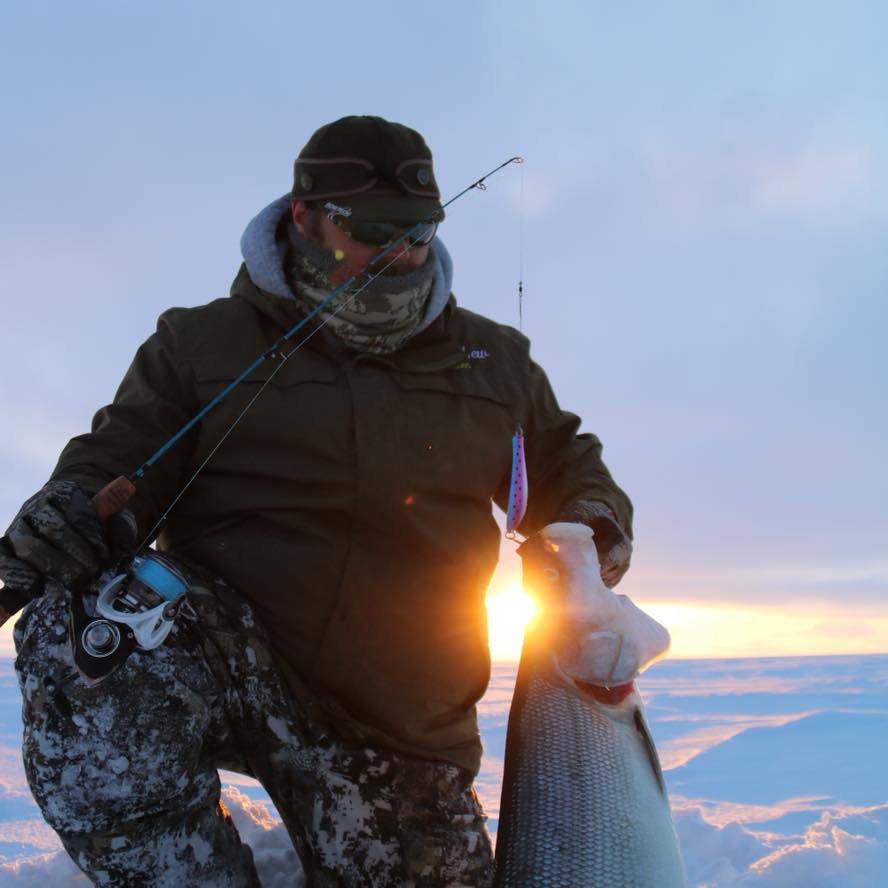
What makes the Brooks Range so special or unique? Why should people in the Lower 48 care about the future of this region?
Simply put, there just isn’t much untouched land left. I’ve traveled across this planet over the years and this is the only place I’ve been where you can travel for miles, literally hundreds of miles, and not see a house, car, road, powerline, or anything man made. Often, I won’t even see another person. It’s nature as nature was intended to be.
What do you think most people would be surprised to know about the Brooks Range?
It’s actually the northernmost extension of the Rocky Mountains.
What’s one piece of essential gear you’d recommend to someone planning their first wilderness trip in the Brooks?
Bring the best camera you can afford. Twice I’ve found myself in the middle of the caribou migration. Hundreds of thousands of caribou walking just feet away. The first time it happened, I only had a little Kodak film camera. I had just experienced something truly majestic and didn’t have the right gear to capture it. The next day I ordered a real camera. The second time it happened, I only had my phone camera. It was snowing and the pictures didn’t turn out great, but I did get a little video.
Is there a part of the Brooks Range that you haven’t had the chance to explore but would like to?
I have not crossed over to the north slope of the range. I got to the top and looked in that direction and was in awe of the vast openness of the landscape. I could only imagine the wildlife and adventure that laid ahead of me. Unfortunately, I needed to get back home. Maybe one day I’ll drop down the north slope of the range and see some animals that have never seen humans before.
What’s your favorite hunting or fishing memory or story from your time in the Brooks Range?
There are so many! Several years ago, I was hunting muskox. It was the second to the last day of a season that didn’t give any great days for hunting. I figured I better venture out anyway since I may never draw the tag again. It was 20 below in Kotzebue when we left, but in the area my tag was good for, the temp was around 40 below zero. We were about 80 miles from Kotzebue, snowmobiling all over and looking for musk ox. I was ready to turn back and head home when my hunting partner said we should check over the next ridge before we call it a day. Sure enough, 32 muskox stood in a little valley. Then, the adventure started.
(Note: Muskox hunting opportunities in the Northwest Arctic are extremely limited. A small number of permits are awarded each year to local subsistence hunters only through highly competitive state and federal processes.)
What concerns you most about the proposed Ambler Road and/or the associated mines?
I think water quality is my biggest concern. Mining activities could be detrimental to the waterways near the mine sites, and the roadway itself will alter hundreds of streams and rivers. Anything that ends up in that water will make its way through the Kobuk River system and into Kotzebue Sound. Dust from the road is also a major concern. There are high levels of natural asbestos in many of our village roadways and it has caused medical issues for decades. This will certainly be an issue with a 200-plus-mile road through the region. And that is in addition to what standard roadway dust is known to do to the adjacent vegetation, waterways, and wildlife that nest and feed in those areas.
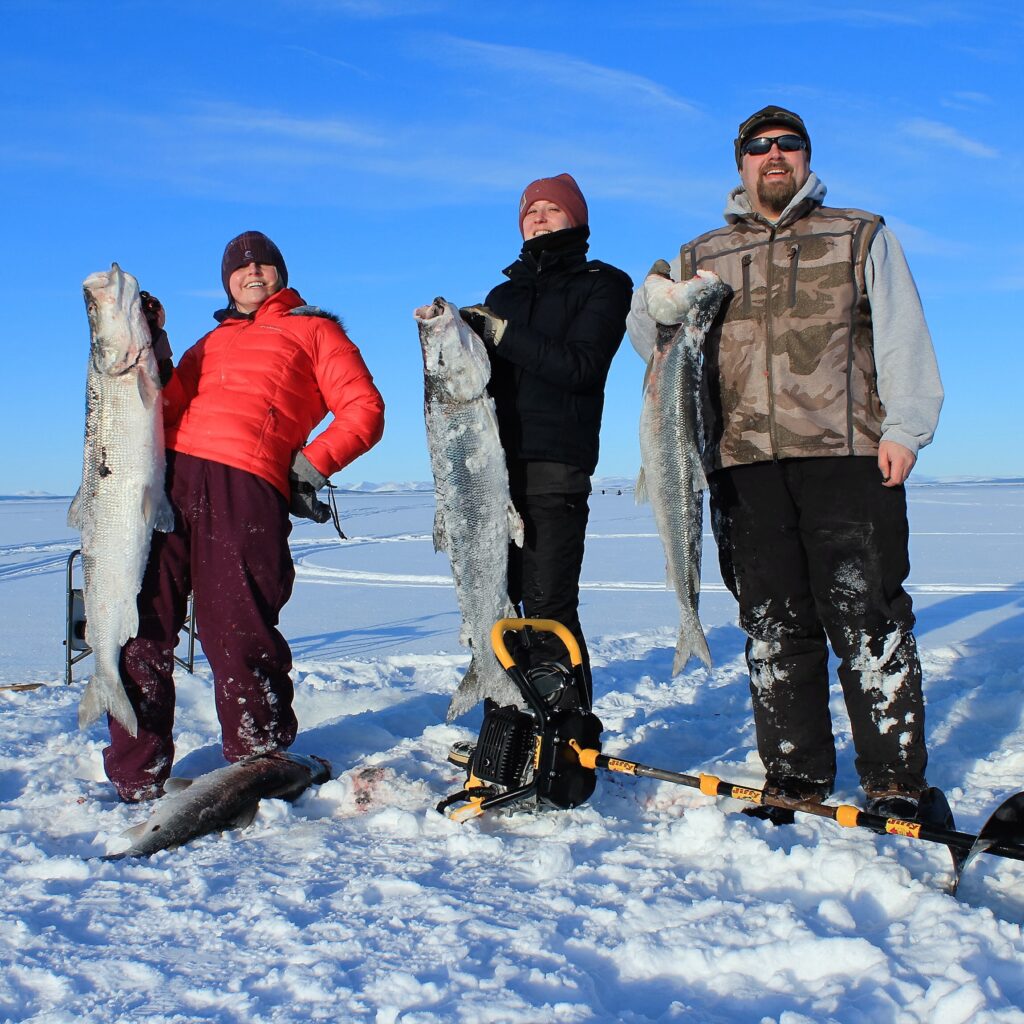
How might you, your community, and/or your business be impacted if the proposed Ambler Road were built?
The road will not have any positive effect on my business. I run an ice fishing guide service for sheefish on Kotzebue Sound and the Noatak and Kobuk River deltas. These rivers are the spawning grounds for sheefish and any disruption to those waterways could be detrimental to a fish species that has such a small geographical range. Also, the city of Kotzebue is downstream from the proposed road and mine. Any pollutants will eventually make their way into the city’s water source.
What’s the biggest misconception you’ve heard about the proposed Ambler Road, and how have you responded?
The biggest misconception is that the local people are in favor of this project. The truth is that much less than half the people who live in this region are in favor of this project. This area is in need of job opportunities. That’s no secret. But there is no guarantee that locals will be hired for the road construction. And even if they are, the number of jobs is not large enough to justify a scarring of the landscape of this proportion.
What might you say to someone who said, “I don’t understand why this road is such a big threat?”
Well, its proposed path is almost entirely through wetlands. So, it’s a huge threat. Wetlands are the environment’s filtration system and in addition to hosting all the wildlife in this region, wetlands help prevent erosion of the land, keep the water and air clean, and provide food for the people and other animals of this region.
Why is it important that hunters and anglers across the nation speak up against the proposed Ambler Road?
If they don’t, then someday there either won’t be any places left to hunt and fish or there won’t be any animals left to hunt and fish. Hunting and fishing access is already limited in this region. It’s a difficult and expensive place to get to. But when you see it? Damn, it’s worth the effort. I wish every outdoorsman and outdoorswoman could have the opportunity to experience the greatness of the Brooks Range. It truly is a unique place where wildlife rules the landscape.
Take Action for the Brooks Range
Help ensure the Bureau of Land Management maintains the unique values of this iconic landscape by denying the right-of-way for the proposed Ambler Road.
Sign the Petition
